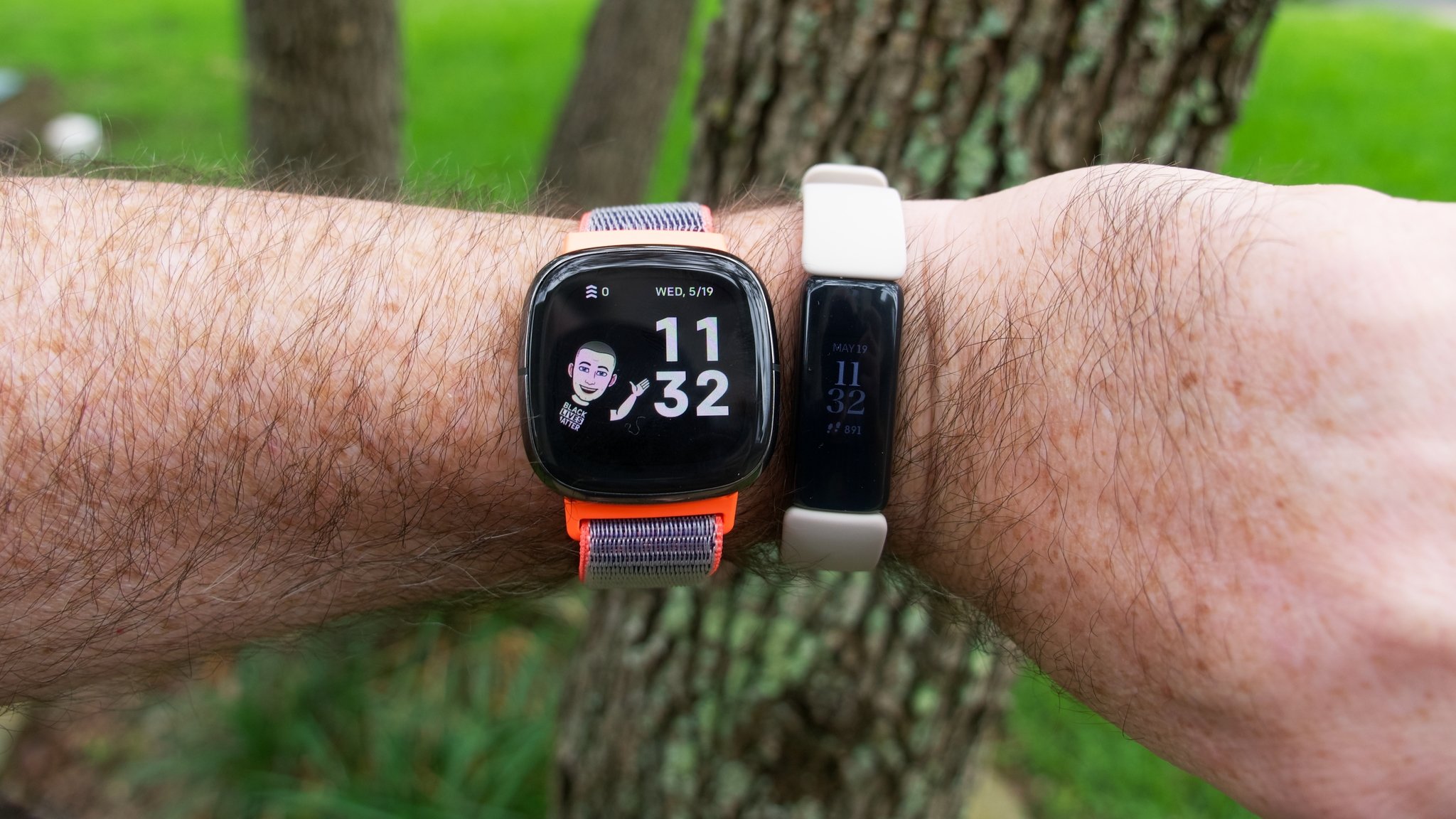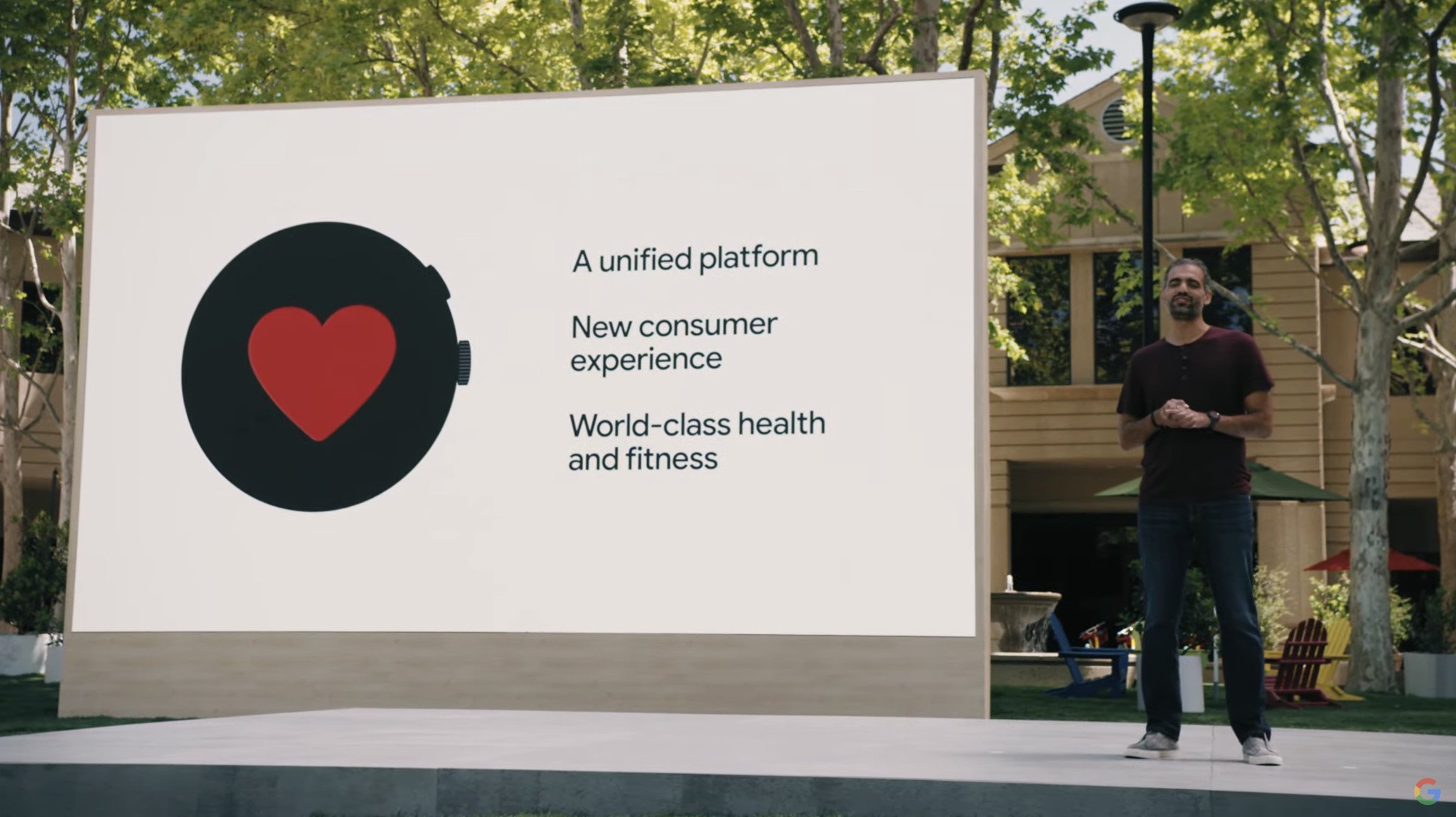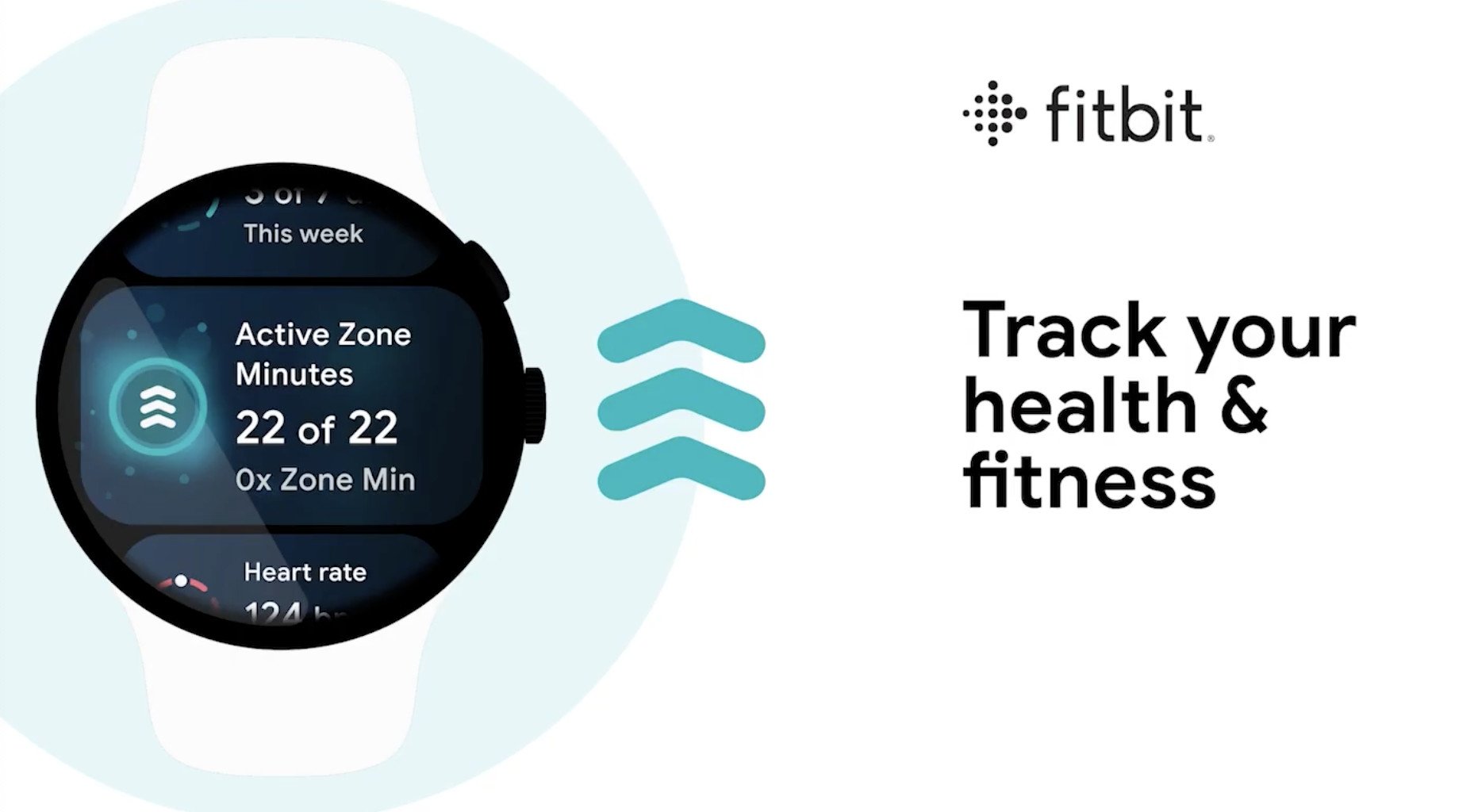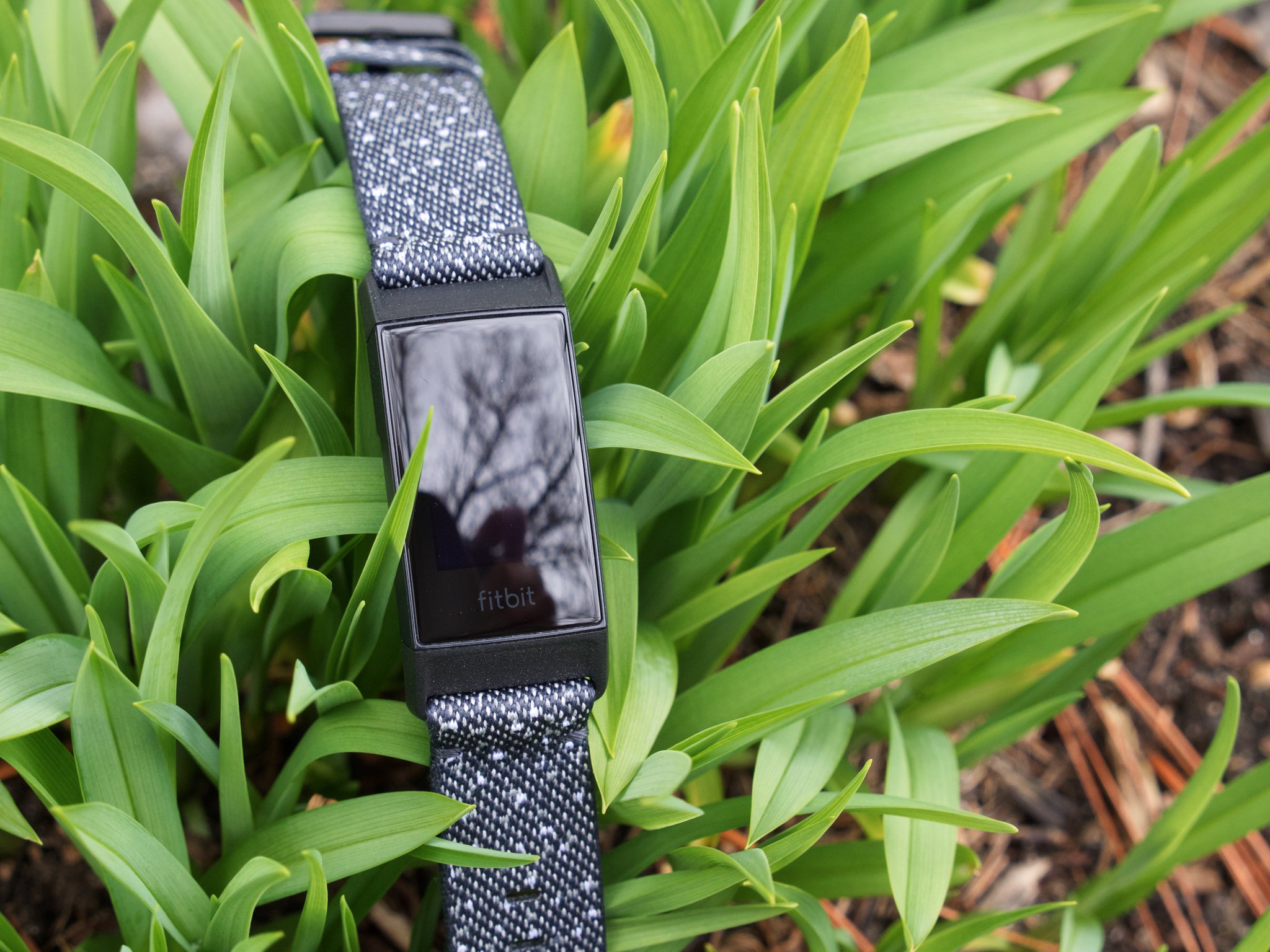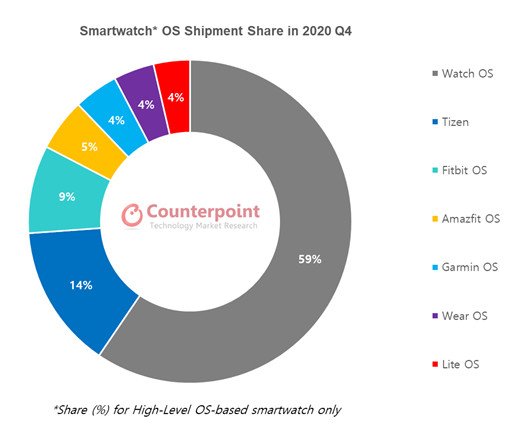Will Google's smartwatch resurgence spell the end of Fitbit trackers?
Wear will Fitbit's trackers be in a few years?
Like many of you, I've been eagerly following every big announcement and digesting every little tidbit that has come out of the Google I/O 2021 developer conference like a kid on Christmas Eve. I love where Android's design language is headed with Material You, I can't wait to try out the new AR features in Google Maps, and my inner nerd is super excited to follow where Google's AI and ML prowess is leading and begin having my own conversations with Pluto (which, btw, is not a planet).
However, the part of the opening keynote that I was most interested in was the section on Wear OS (which is now apparently just called Wear). During this portion of the presentation, we learned about Google's plans for its wearable operating system and devices, but there was one thing that wasn't mentioned in the keynote or the Wear breakout section - the future of Fitbit's trackers. I've been dreading the eventual neglect or killing off of Fitbit's trackers ever since Google announced it was going to purchase the company, and I hope that my fears are overblown or misplaced.
Wear things are headedGoogle's wearable operating system began with great promise back in 2014 as Android Wear, and it had solid initial buy-in from hardware OEMs like LG, Motorola, and Samsung. But after languishing on the vine for years and being rebranded to Wear OS, many in the tech community were just about ready to throw in the towel on the project.
At the 2021 I/O keynote, we learned that not only does Wear OS have a new name - Wear - but it is being reinvented, reimagined, and redeveloped in conjunction with Samsung. The two companies plan to take what is best from Tizen and Wear OS, sprinkle in some usability and design updates to core Wear apps like YouTube Music, Google Maps, and Google Pay, and integrate fitness features from Fitbit.
Perhaps even more exciting, Google confirmed that future Samsung Galaxy Watches will run the new Wear operating system, and Fitbit CEO James Park promised that the next premium Fitbit smartwatch would too. Then there are the rumors of a Google-branded Pixel Watch to consider, which would also obviously be running Wear.
I know that I've been hard on smartwatches in the past, and given Google's track record with wearables, I'm not alone in my skepticism here. Yet some of the major promises of this new Wear roadmap, like better first and third-party apps, better UI navigation, and better battery life, would address nearly all of the public criticisms of Google's wearable platform, including my own criticisms.
Even so, I still would prefer to wear a fitness tracker like my Inspire 2 or the forthcoming Luxe. But will that even be an option for me in a few years?
Getting off trackI had the opportunity to speak with Neil Shah, Partner and Vice President of Research at Counterpoint Research about Google's plans for Fitbit in general, and Fitbit trackers specifically. According to his analysis and research, the future for Fitbit trackers might not be as bright as I hope for.
Ideally, Google would like to position Fitbit as more fitness-centric wearables (in the future mostly powered by the new Wear operating system) and the Pixel Watch as a more premium option focusing on communication and lifestyle. We believe by the end of next year, we should see most of Fitbit's portfolio transitioning to Wear, which would take the best from everything - Wear, Tizen, and Fitbit OS.
When Fitbit launched its latest devices last fall, including the Inspire 2 tracker, it referenced an IDC report saying that fitness bands and trackers would comprise nearly 40% of the fitness wearables market. At the time, I took that (and the subsequent announcement of the Luxe) as signs that the company was committed to developing fitness trackers well into the future, but after nary a mention of these devices in the wake of the new Wear platform announcements, I have started to get a bit nervous about their future.
Recent fitness tracker growth has been driven by emerging markets, but experts don't expect that to continue.
"Fitness bands have been popular in developed markets.... but many of these customers are/have upgraded to advanced smartwatches," notes Shah. "Also, fitness bands have proliferated in cost-conscious high-volume emerging markets where smartwatches weren't affordable. The bands have been mainly driven by players such as Xiaomi, Realme, and the long-tail of local brands which contribute to the overall volume share of wearables."
Shah told me that many/most of these customers in emerging markets have already started the process of transitioning to "basic smartwatches which run a proprietary OS/TROS" and which are much cheaper than more premium devices. He compared this transition in those markets to the one from feature phones, to smart-feature phones, to smartphones, and that moving forward, it's likely that "bands will be further relegated to sub-$25 market."
Following up on the idea that the tracker market is shifting from Fitbit to other OEMs, Shah said that he thinks that the Xiaomis and Amazfits of the world probably won't bring Wear to their low-cost bands. "It will mostly be proprietary RTOS (realtime OS) based for fitness trackers," Shah said.
Given these trends, I asked Shah if he thought Fitbit would continue to make its basic trackers or if Google would eventually just cede this space to the host of (mostly) Chinese OEMs like Xiaomi, Amazfit, and others.
"Fitbit's fitness bands as a % of user base have been shrinking as they upgrade to smartwatches, so I see the number of models launched, and investment in basic bands will decline as Google would love to have Wear on every Fitbit [device], so it can help build the user's knowledge graph and serve its business model in the long run," said Shah.
Having Wear OS on more devices is better for Google's business model.
"If you look from the business model's perspective, Google would like to collect more data and offer a visually better and richer fitness service in future via sensor-filled and more contextual smartwatches than bands."
These trends and market forces certainly provide context for why Google may want to pivot Fitbit away from making more basic fitness trackers in the future; I just hope they don't do so for a long time.
Android Central reached out to a Fitbit spokesperson for comment on this story, but did not get a response in time for publication.
Let's band togetherWhat do you think? Do you expect Google and Fitbit to maintain their fitness tracker line into the future, or do you think that future lies with Samsung and the new Wear platform? How would you feel if Fitbit trackers went away? Let us know!
